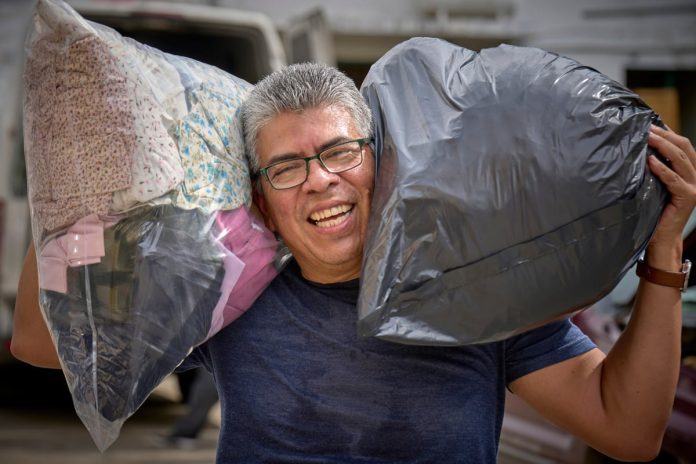Key Points:
- Hurricane Otis, the first Category 5 Pacific hurricane to make landfall in the history of Mexico, devastated Acapulco and surrounding communities on Oct. 25.
- Mexican Methodists, as well as the United Methodist Committee on Relief, provided necessities as well as monetary aid.
- Bishop Agustín Altamirano Ramos said the hurricane devastation is just the latest example of how the climate crisis is pushing congregations throughout the country to respond to new pastoral challenges.
As residents of this seaside resort continue to put their lives back together following an October hurricane, a Methodist pastor said the storm offers a wake-up call about the climate crisis.
“We get lots of storms. Hurricanes of Category 2 and 3 are our daily bread. But a hurricane this big, that intensified so rapidly, that’s new for us. Climate change is real,” said the Rev. Rafael Espinoza, pastor of the Good Shepherd Methodist Church in the La Laja neighborhood of Acapulco.

Moises Espinoza cleans up broken tiles on the roof of his home in Acapulco, Mexico, weeks after the devastating passage of Hurricane Otis. Espinoza is a businessman in Acapulco and a member of the Good Shepherd Methodist Church there. Photo by the Rev. Paul Jeffrey, UM News.
Hurricane Otis, the first Category 5 Pacific hurricane to make landfall in the history of Mexico, devastated Acapulco and surrounding communities on Oct. 25.
Espinoza said people weren’t given adequate notice of the storm’s intensity. Weather forecasters knew Otis was coming, he said, but they predicted much milder winds. Instead, the storm’s rapid intensification was among the fastest meteorologists have ever seen.
At least 52 people were killed by Hurricane Otis in Mexico, according to official reports. Thirty-two people remain missing, but many in Acapulco believe those numbers are artificially low.
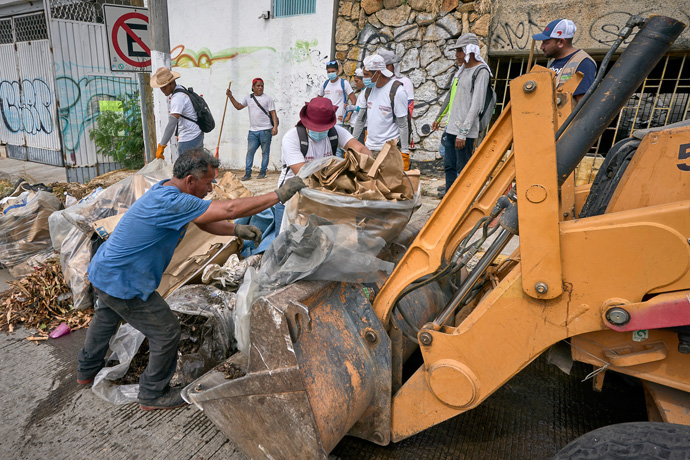
Residents of Acapulco, Mexico, work together cleaning their streets weeks after the devastating passage of Hurricane Otis, which struck the seaside city Oct. 25. At least 52 people were killed in Mexico, according to official reports. Photo by the Rev. Paul Jeffrey, UM News.
Espinoza said recovery will be slow.
“The federal government is contributing well, but we face a titanic task of rebuilding. It will take years to recover. The hotel infrastructure, which is what we all live from, was hit hard. There’s no hotel that isn’t closed. And our city lives from that industry,” he said.
Espinoza said the three Methodist churches in Acapulco received almost immediate support from other Mexican Methodists, who arrived as soon as roads opened, their vehicles loaded with food, clothing and other supplies.
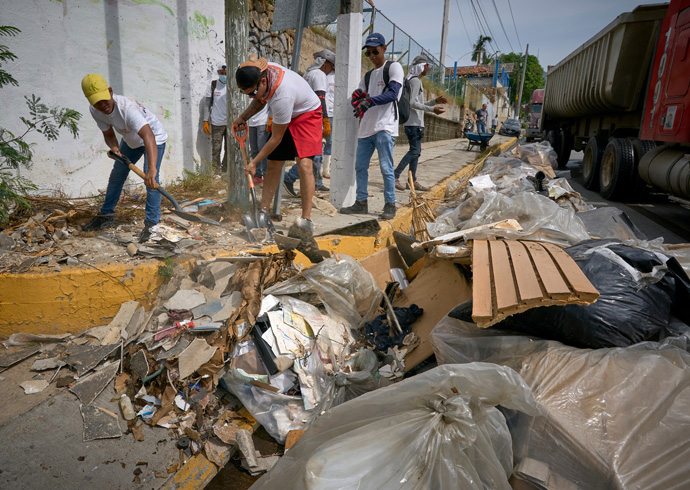
Residents of Acapulco, Mexico, work together cleaning their streets weeks after the devastating passage of Hurricane Otis, which struck the seaside city in October, 2023. The rapid intensification Hurricane Otis underwent in the hours before it slammed into southern Mexico is a symptom of the human-caused climate crisis, scientists say. Photo by the Rev. Paul Jeffrey, UM News.
The United Methodist Committee on Relief made an emergency grant of $10,000 to the Methodist Church of Mexico to support those efforts, according to Cristian Schlick, a United Methodist missionary from Chile who is based in Mexico. He said UMCOR is considering an additional grant.
According to Bishop Agustín Altamirano Ramos, whose Mexico Annual Conference includes Acapulco, church leaders are considering sending teams of carpenters and plumbers, along with rooftop water tanks, to aid in the lengthy reconstruction effort.
Altamirano said the hurricane devastation is just the latest example of how the climate crisis is pushing congregations throughout the country to respond to new pastoral challenges.
“Climate change affects everyone in some way,” he explained. “There are rural communities where people have dedicated themselves to agriculture for generations. But because of changes in temperature and rainfall, they’ve lost income, and their community life has changed. People are migrating to the cities and to other countries.”

Children play at a clinic run by the Methodist Church of Mexico in the village of San Andrés Tlalamac, Mexico. Residents, mostly small farmers, have been hard hit by climate change and cannot keep the clinic operating normally. Photo by the Rev. Paul Jeffrey, UM News.
In San Andrés Tlalamac, a rural community in Altamirano’s conference, volunteer teams from the United States constructed a medical clinic in the 1980s. Residents, mostly small farmers, have been hard hit by climate change and cannot keep the clinic operating normally.
“In recent years,” Inés Rodriguez Ramos said, “we haven’t been able to tell when the rain was going to come. It makes it hard to plant, as there’s either not enough rain when we need it, or too much when we don’t need it. Along with the low prices they pay in the market, it has become difficult to make a living from farming, so many men in the community have migrated to other places or north to the United States.” The 63-year-old resident is a lifelong Methodist.
She said community members, along with the conference, have struggled to keep the clinic functioning. A grant from the Encounter with Christ in Latin America and the Caribbean, a permanent fund of the United Methodist Board of Global Ministries, helped the community keep a dental clinic open and host special programs for children during the COVID-19 pandemic.
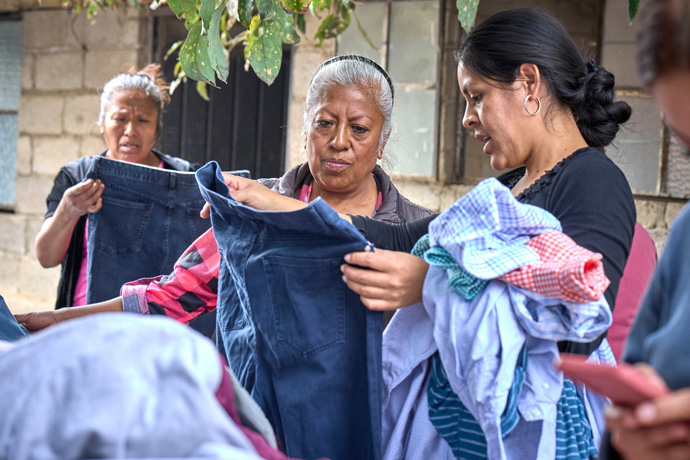
Residents of San Andrés Tlalamac, Mexico, browse donated clothes sold to raise funds for a clinic in the village run by the Methodist Church of Mexico. The clinic was built by volunteer groups from the United States, but the local community has had difficulty keeping it open. The project has received support from the United Methodist Board of Global Ministries. Photo by the Rev. Paul Jeffrey, UM News.
Methodist Bishop Rodolfo Edgar Rivera de la Rosa of Mexico’s North Central Annual Conference said the climate crisis has proven especially difficult for an indigenous group in his area.
Subscribe to our
e-newsletter
Like what you’re reading and want to see more? Sign up for our free daily and weekly digests of important news and events in the life of The United Methodist Church.
“We are definitely aware of the crisis produced by climate change,” he said. “In our conference, this has hit the Tarahumara people very hard. Much less rain is falling in the Sierra Madre mountains where they live. They’re living with more heat, more wildfires and smaller harvests. All that means greater hunger and other problems.
“Our churches have several ministries responding to their needs. At the same time, we are calling for better stewardship of our water resources.”
Rivera said women play a key role in responding to a changed climate.
“It’s the women who are continually rising up, speaking out, pushing new ideas and concrete actions to care for the environment,” he said.
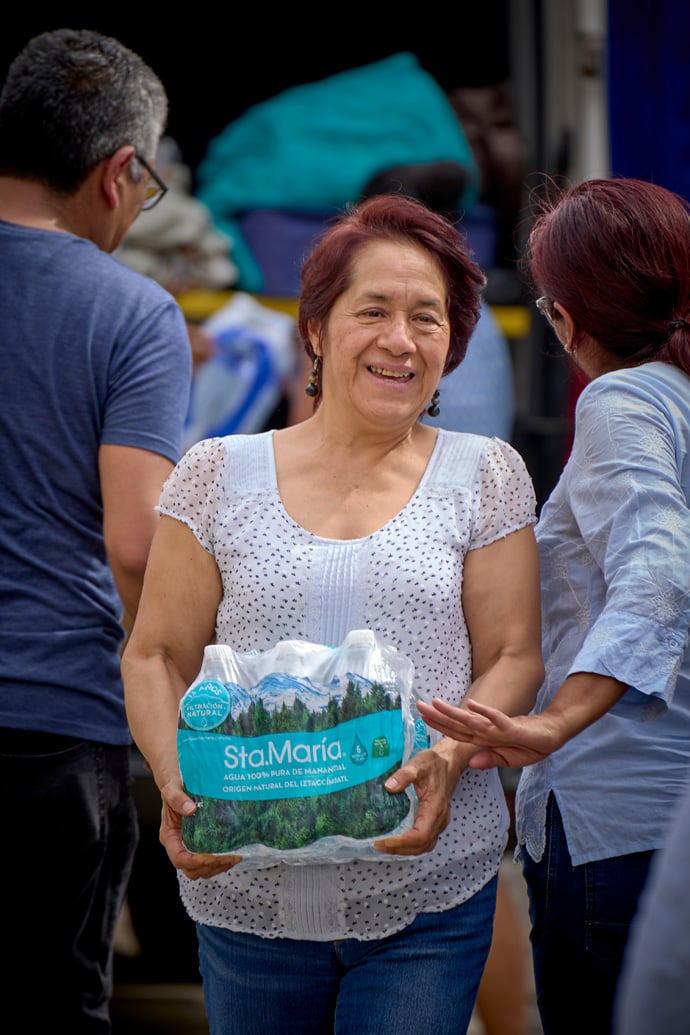
The Rev. Edith Molina, a Methodist pastor from Mexico City, helps deliver emergency supplies to Acapulco, Mexico, where Hurricane Otis struck in October. Photo by the Rev. Paul Jeffrey, UM News.
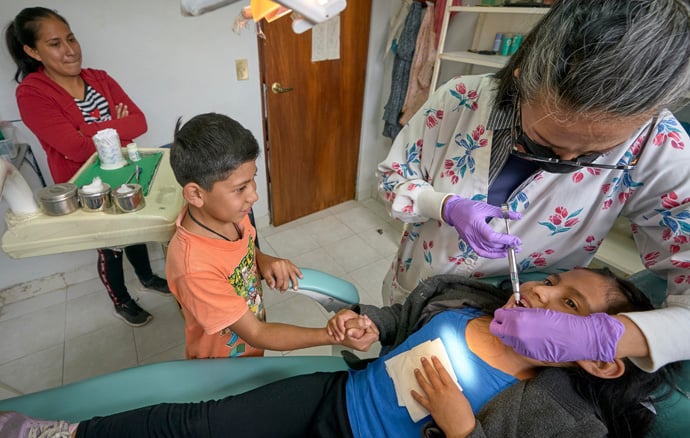
Dentist Ivon Garcia operates on 6-year-old Yaretzi Valencia, who gets moral support from her brother, 8-year-old Jose Miguel, in a clinic run by the Methodist Church of Mexico in the village of San Andrés Tlalamac, Mexico. The children’s mother, Norma Valenica, observes in the background. The clinic was built by volunteer groups from the United States, but the local community — hard hit by climate change — has had difficulty keeping it open. The project has received support from the United Methodist Board of Global Ministries. Photo by the Rev. Paul Jeffrey, UM News.
A United Methodist missionary who teaches at the Theological Community of Mexico recently challenged Mexican Methodists to reflect theologically on the climate crisis.
“Today we’re just beginning to speak of migrants who are displaced by climate change, and those numbers will only increase,” said the Rev. Genilma Boehler. “Within 20 or 30 years, we’ll be speaking of millions of people who live in cities, for example, that are overwhelmed by rising oceans.” She spoke at a December conference in Mexico City celebrating the 150th anniversary of the establishment of Methodism in the country.
“Are we going to do something or let them die under the water?” she asked. “Are we who call ourselves evangelicals going to enter Noah’s Ark again and let everyone else drown? An individualized understanding of sin and salvation implies that we’re guaranteed a place in paradise, but others can perish. Why worry about the environment if my future is guaranteed?”
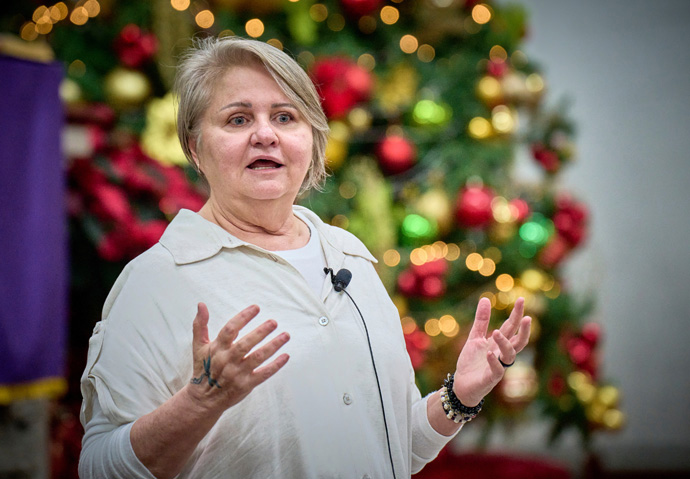
Genilma Boehler, a United Methodist missionary from Brazil who serves as a professor at the Theological Community of Mexico, speaks about the climate crisis on Dec. 1, 2023, during the celebration of the 150th anniversary of the founding of the Methodist Church of Mexico. The event took place at the Gante Methodist Church in the historic center of Mexico City. The denomination observed the anniversary with a Nov. 30 to Dec. 3 conference in Mexico City looking at lessons from its history to chart a new course into its future. Photo by the Rev. Paul Jeffrey, UM News.
Boehler, a native of Brazil, said climate change is forcing Christians to face tough theological questions.
“The climate crisis calls us to rethink salvation, recognizing that it is far broader than an individual’s soul, that it promises abundant life to all,” she said. “But our theologies too often continue to view salvation almost as something secret we keep hidden in a treasure chest, and those who find it and believe in it will live, while everyone else will die.
“We need courage to rethink our theologies and rethink how we act as a church, because an environmentally sustainable society demands a theology and a way of living our faith that are equally sustainable.”
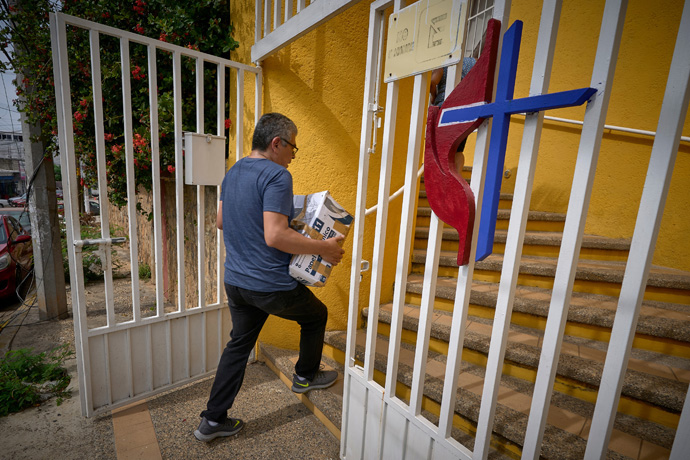
Bishop Agustín Altamirano Ramos helps deliver emergency supplies to Acapulco, Mexico, where Hurricane Otis struck in October, 2023. Photo by the Rev. Paul Jeffrey, UM News.
Jeffrey is a photojournalist and founder of Life on Earth Pictures. He lives in Oregon.
News media contact: Julie Dwyer at (615) 742-5470 or [email protected]. To read more United Methodist news, subscribe to the free Daily or Weekly Digests.




